AstraZeneca blood clot links explained: How it affects you
Australia announced major changes to the use of AstraZeneca, as European experts want new side effects listed on the jab. Here’s everything you need to know.
Coronavirus
Don't miss out on the headlines from Coronavirus. Followed categories will be added to My News.
Australia announced major changes to the use of the AstraZeneca jab – namely, it won’t be given to “under 50s” – after the EU regulator found it had links to rare cases of blood clotting.
Urgent new medical advice prompted the federal government to “recalibrate” its coronavirus vaccine strategy, likely delaying the rollout even further.
Most Australians under 50 will no longer be recommended to use the AstraZeneca coronavirus vaccine because of concerns around blood clots, a rare side effect from that product.
Prime Minister Scott Morrison called a late press conference to announce the change, based on advice from The Australian Technical Advisory Group on Immunisation (ATAGI).
Health Secretary Brendan Murphy broke down what the new advice would mean for the vaccination program.
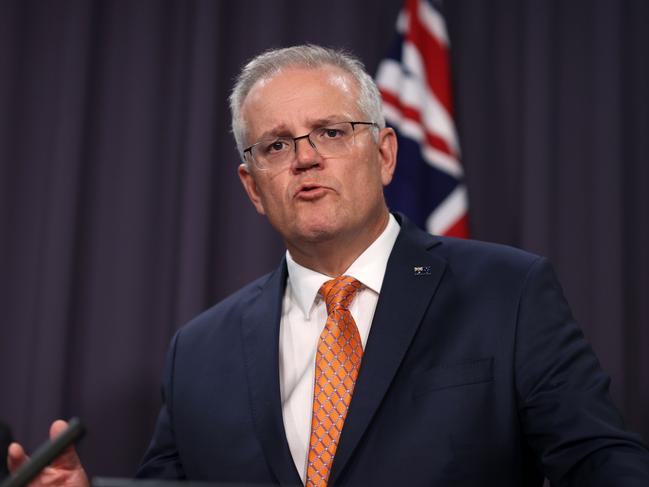
“For phase one, which is vulnerable people, we will pretty much continue as we are,” he said.
“Those over 70 and 80 will continue to get AstraZeneca at their GPs and be confident in its efficacy and its safety.
“For those healthcare workers under 50, they will now be prioritised to Pfizer, and that might delay that particular phase of 1b. But that’s the only phase that might be delayed.”
The European Medicines Agency (EMA) said blood clots should be listed as a rare side effect of the AstraZeneca jab but the benefits continue to outweigh risks, as several countries battle fresh virus surges amid vaccine shortfalls.
A number of nations have suspended the use of AstraZeneca’s vaccine for younger populations after it was earlier banned outright in several places over blood clot scares.
The United Kingdom said it will adopt new medical advice to offer most people under 30 an alternative to AstraZeneca if possible, after reporting 19 deaths from clots among people who received the shot.
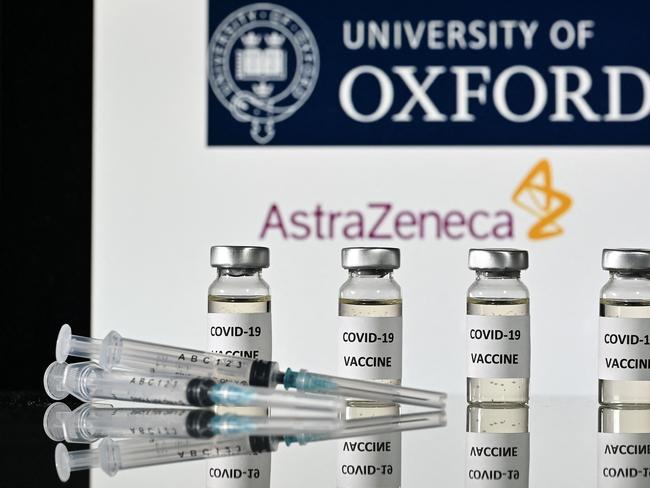
The announcement came after the EMA examined 86 blood clotting cases, 18 of which were fatal, out of around 25 million people in Europe who received the AstraZeneca vaccine. Most of the cases were in women aged under 60.
But EMA chief Emer Cooke said no particular risk factor had been identified and the clots may be linked to an immune response to the vaccine.
“The benefits of the AstraZeneca vaccine in preventing Covid-19 overall outweigh the risk of side effects,” she told a news conference.
“It is saving lives.”
Australia has had one case of a 44-year-old man who was admitted to a Melbourne hospital with clotting, just days after receiving the AstraZeneca vaccine. The government’s medical experts have said his case is likely to be linked to a rare blood clotting issue, but the TGA and ATAGI are meeting to discuss Australia’s next steps in administering the vaccine.
Here is some helpful information surrounding the Oxford-AstraZeneca vaccine:
What is the AstraZeneca vaccine, and how does it work?
The AstraZeneca vaccine is a viral vector vaccine for COVID-19 developed by Oxford University and AstraZeneca.
It uses the modified common cold virus (known as adenovirus ChAdOx1) found in chimpanzees.
This is a harmless, weakened adenovirus that has been genetically changed so that it is impossible for it to grow in humans.
It has been modified to mimic coronavirus and once injected, triggers the body’s immune system to fight off coronavirus virus, should it need to.
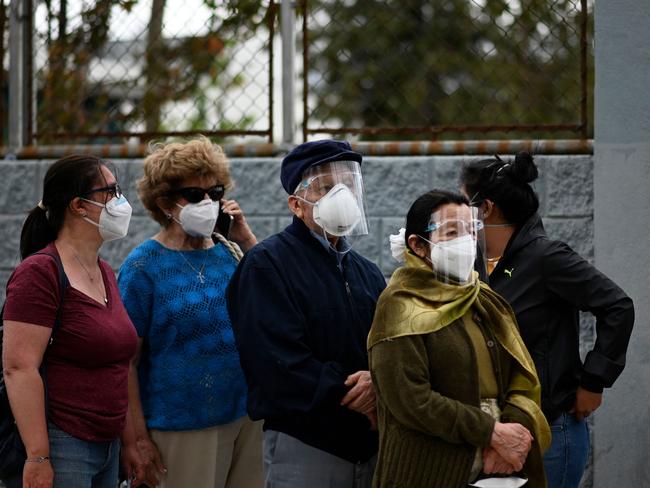
Where have blood clotting deaths occurred globally?
The MHRA regulator said its “rigorous scientific review of all available data” had found 79 blood clots and 19 deaths among people who had received one of the 20 million AstraZeneca doses administered in the UK.
It insisted such incidents remained “extremely rare”.
In addition to the UK’s cases, France has 12 cases and four deaths, and Norway has five cases and three deaths.
Germany reported 31 cases of CVST, and nine deaths out of the 2.7 million people vaccinated, with most cases in young or middle-aged women.
What is the blood clotting condition, how risky is it?
The blood clotting syndrome known as vaccine-induced prothrombotic immune thrombocytopenia (VIPITS) has been seen in one in 100,000 people who receive the AstraZeneca vaccine.
It is being seen in people aged under 55 and is three times as likely to occur in young women than men.
Most of the cases emerge as cerebral clots in the brain, known as cerebral venous sinus thrombosis (CVST). But there can also be blood clots in the abdomen known as splanchnic vein thrombosis.
It involves clotting with a low blood platelet count, known as thrombocytopenia.
Experts do not believe that VIPIT is more common in people who have had blood clots before, people with a family history of blood clots, people with a low platelets, or pregnant women, because VIPIT does not develop through the same process as usual types of bleeding or clotting problems.
VIPITS has been seen to occur between four and 20 days after vaccination.
Which countries have paused or suspended AstraZeneca vaccine over blood clotting conditions/deaths now?
Austria
Suspended use of the vaccine on 7 March after the death of one person and illness of second person.
Belgium
They are recommending the jab not be given to younger people.
Cameroon
Suspended distribution of the vaccine it was scheduled to receive on 20 March 20 from COVAX due to international reports.
Canada
Suspended the jab for people under 55. They are recommending the jab not be given to younger people.

Denmark
Suspension of the vaccine occurred on 25 March for two weeks and has been extended by three weeks while further investigations are carried out.
Finland
Resumed using the vaccine from 29 March, but only for people 65 and over.
France
Resumed using AstraZeneca’s vaccine on 19 March, but only for people 55 and older. But they are recommending the jab not be given to younger people.
Georgia
Limited the use of the vaccine after a nurse died of anaphylactic shock.
Germany
Restricted use of the jab to people over 60 as of 31 March, following further reports of brain clots. But they are recommending the jab not be given to younger people.
Indonesia
Resumed using the vaccine on 22 March 22 but recommended against using the jab in people with a low blood platelet count.
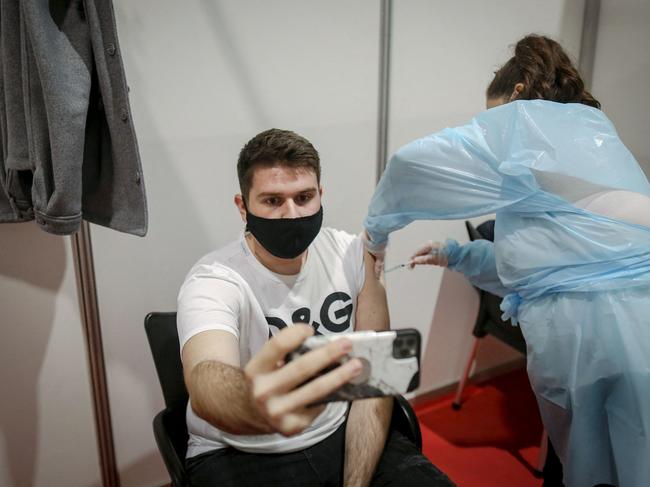
Italy
Paused using the vaccine on 19 March and resumed but people who refuse the jab will be given another option later. But they are recommending the jab not be given to younger people.
Lithuania
Resumed administering the vaccine on 19 March but only for people over 65.
North Macedonia
On 31 March the jabs were restricted to people aged over 60.
Norway
Norway will decide on 15 April whether or not it will be using the vaccine.
Romania
Stopped vaccinating people on 11 March.
Spain
Spain announced it would reserve the AstraZeneca vaccine for those over 60. They are recommending the jab not be given to younger people.
Sweden
Paused use of the vaccine but resumed use on 25 March for people 65 and older. Restrictions are in place for people under 65 years old.
United Kingdom
Britain said it would adopt new medical advice to offer most people under 30 an alternative to the AstraZeneca coronavirus jab if possible, due to concerns over blood clots.
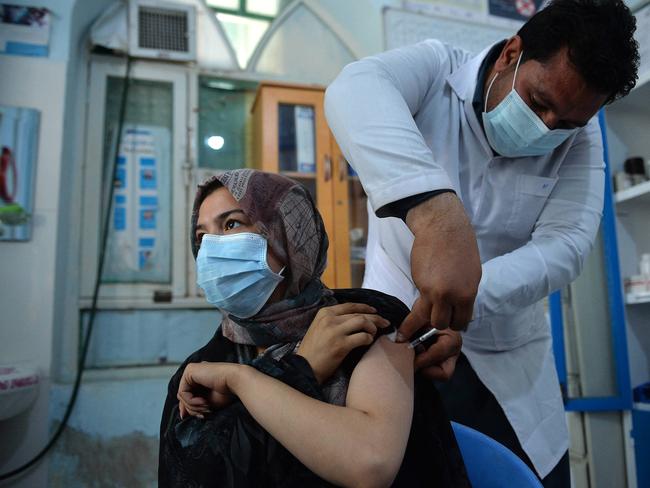
Who is suffering from blood clots?
Many of the cases reported were in adults aged under 55 years, and the majority were in women.
This higher proportion might be because many frontline health care workers, who are often women, were vaccinated as a priority.
However, it is not yet clear if age and sex are risk factors across the board.
What is being done to investigate blood clot-related deaths?
In the UK, Dr June Raine, the chief executive of the MHRA, said: “The benefits … in preventing COVID-19 infection and its complications continue to outweigh any risks and the public should continue to get their vaccine when invited to do so.”

Nevertheless, investigations are underway in the UK and EU to determine if the AstraZeneca vaccine is causing the very rare blood clots.
The European Union’s medicines regulator (the EMA) said a connection was “not proven, but is possible”.
But on 31 March, despite the reports of rare blood clots, EMA head Emer Cooke said there was “no evidence” that would justify stopping the use of AstraZeneca’s vaccine in any demographic.
Meanwhile, at an emergency meeting in Germany, national Health Minister Jens Spahn and 16 state health ministers decided to suspend the routine use of the AstraZeneca vaccine for people under age 60.
Germans under 60 can still receive the shot at the discretion of doctors, and after individual risk analysis.
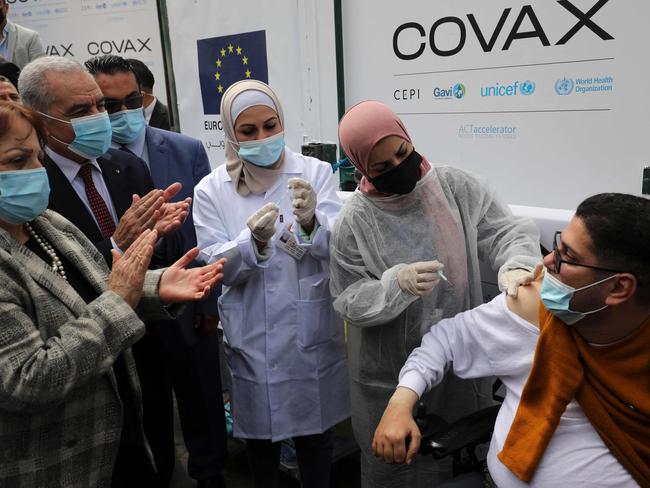
What have studies found out so far?
In a study released on 28 March that has not yet been peer-reviewed, German and Austrian researchers pointed to a known biological mechanism as a possible explanation for the apparent surge in atypical thrombosis.
The AstraZeneca vaccine, they wrote, is associated with a thrombosis disorder “that clinically resembles heparin-induced thrombocytopenia (HIT)”.
The authors, led by Andreas Greinacher from the University of Greifswald, proposed a name for what they described as a new syndrome: “vaccine-induced prothrombotic immune thrombocytopenia (VIPIT).”
“We have to stop speculating on whether there is a link or not — all the cases showed these symptoms three to 10 days after inoculation with the AstraZeneca vaccine,” Pal Andre Holme, who heads a team at Oslo National Hospital working on these cases, told Norwegian television. “We have not found any other triggering factor.”
Researchers at Oslo National Hospital had earlier suggested that cases might have been triggered by a “powerful immune response” to the vaccine.
“We do not have just one vaccine, we have several,” Sandra Ciesek, a professor of virology at Goethe University in Frankfurt, wrote in Science magazine.
“So, restricting the AstraZeneca vaccine to older people makes sense to me.”
What does the WHO think about the blood clotting incidents?
The World Health Organisation’s vaccine experts on Wednesday echoed EMA’s findings, saying a causal relationship between the vaccine and blood clots was “plausible but is not confirmed”.
“We believe the benefit-risk balance is very much in favour of the vaccine,” said the WHO in response to an AFP query.
AstraZeneca itself said two studies by British and European regulators “reaffirmed” that the benefits of its vaccine “far outweigh the risks”.
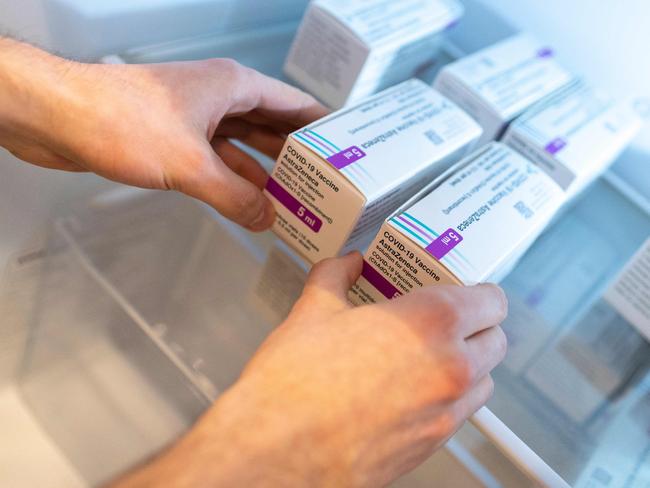
“Thromboembolic events are known to occur frequently. Venous thromboembolism is the third most common cardiovascular disease globally.
“In extensive vaccination campaigns, it is routine for countries to signal potential adverse events following immunisation. This does not necessarily mean that the events are linked to vaccination itself, but it is good practice to investigate them. It also shows that the surveillance system works and that effective controls are in place.
“WHO is in regular contact with the European Medicines Agency and regulators around the world for the latest information on COVID-19 vaccine safety. The WHO COVID-19 Subcommittee of the Global Advisory Committee on Vaccine Safety is carefully assessing the latest available safety data for the AstraZeneca vaccine. Once that review is completed, WHO will immediately communicate the findings to the public.
“At this time, WHO considers that the benefits of the AstraZeneca vaccine outweigh its risks and recommends that vaccinations continue.”
Has Australia had a case involving blood clotting?
Yes, a 44-year-old Melbourne man developed thrombosis after receiving the jab.
Australia’s Acting Deputy Chief Medical Officer Michael Kidd said it was “likely” there is a link between the AstraZeneca vaccine and a Melbourne man being hospitalised with blood clots.
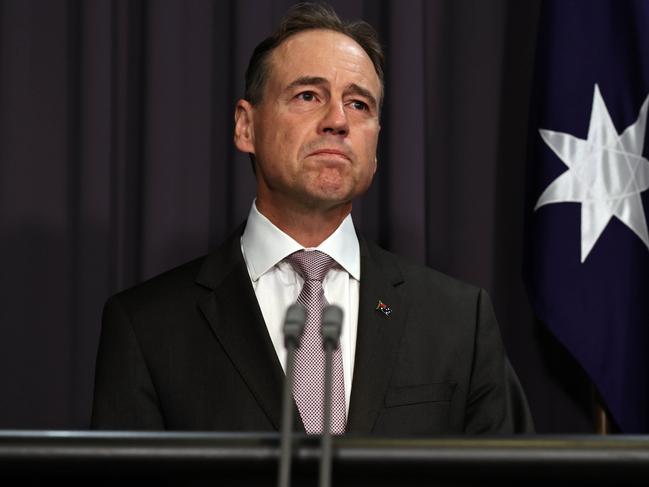
What is Australia doing about it?
Professor Kidd has said the national vaccination rollout for COVID-19 will not change, but health authorities will continue to investigate whether blood clots developed by the Victorian man are linked to the AstraZeneca jab.
Prof Kidd told the media the Australian Technical Advisory Group on Immunisation (ATAGI) and the Therapeutic Goods Administration (TGA) had not recommended any change to the national vaccine plan following an urgent meeting of health authorities.
He cited a lack of definitive evidence of a connection between the man’s condition and the vaccination he received in March.
However, he said that because the case was similar to those reported from overseas, a connection was likely.
“While at this time, we don’t have evidence of causality, the clinical features of this case are consistent with what we have seen in international reports of similar cases. And it is likely that the case reported yesterday is related to the vaccine,” Prof Kidd said.
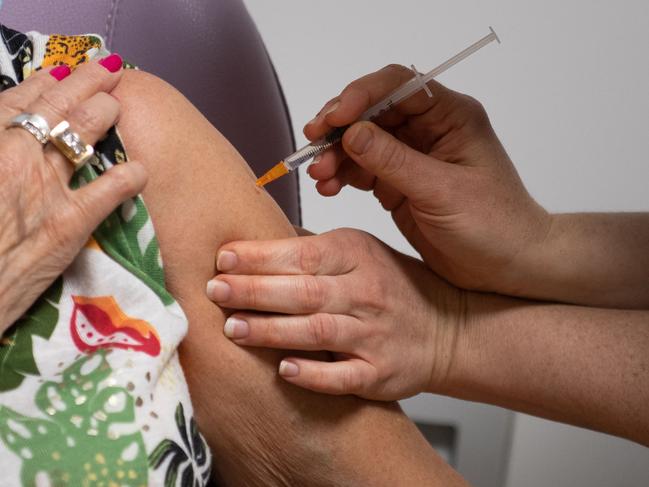
The Therapeutic Goods Administration said on 31 March that a link between the vaccine and clot disorders had not been proven but that it was still investigating the issue as vaccinations continue.
A statement from ATAGI has been released for healthcare providers on the clotting,
providing information on clinical management.
What will happen next?
Given the small percentage of blood clot cases, unless a significant number of cases emerge, the jab will not be suspended in Australia.
It is up to each country to administer the doses or restrict them to certain types of people.





